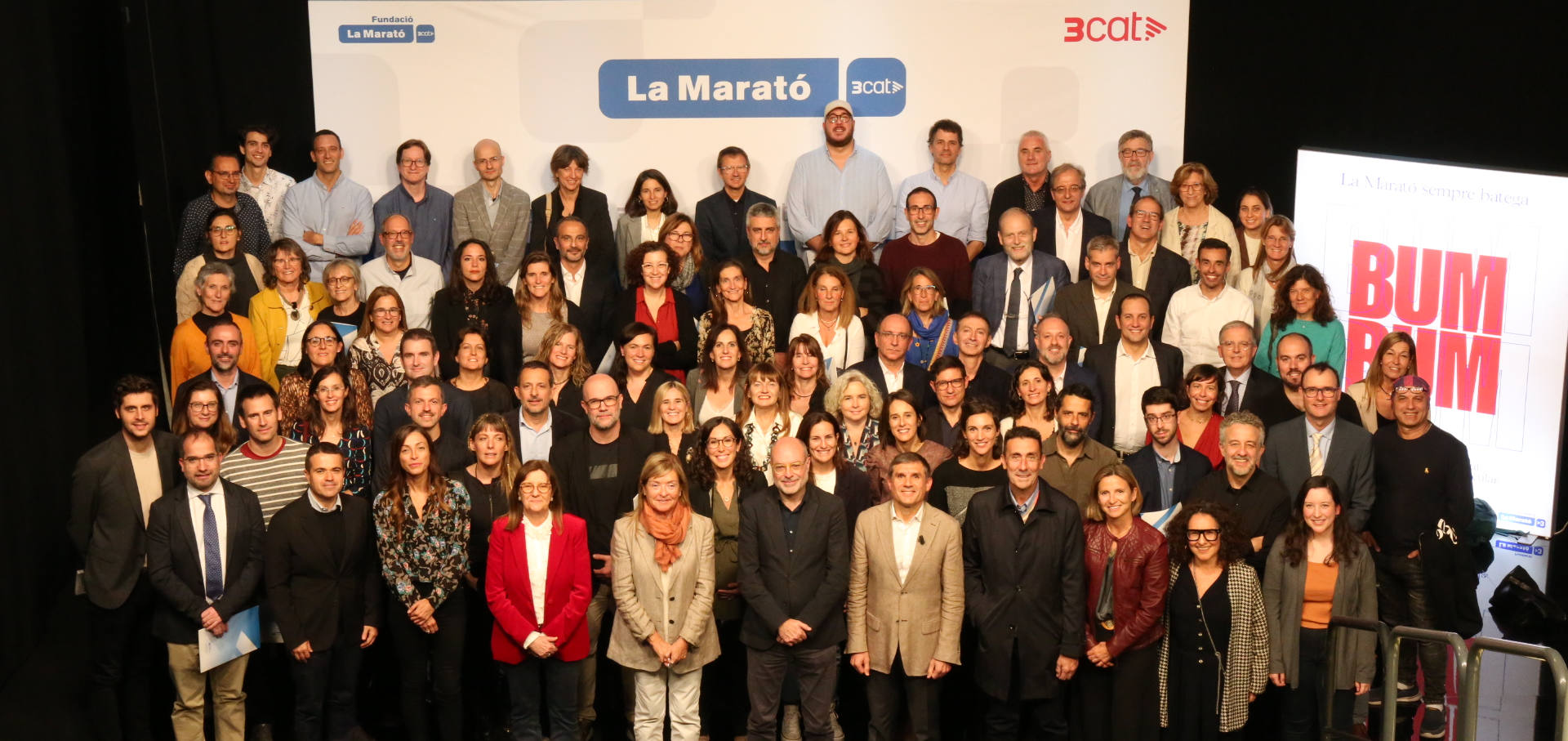ISGlobal to Lead Project on Chrono-nutrition Funded by La Marató de 3Cat
A team coordinated by Camille Lassale will investigate the consequences of the hours of fasting on health and the mechanisms behind it
14.11.2023
"Unravelling the link between chrononutrition and cardiometabolic disorders from an epigenetic perspective". This is the official name of the project led by ISGlobal researcher Camille Lassale, which has been one of the 37 selected by the La Marató de 3Cat Foundation to receive the necessary funding to become a reality. Among the research questions that serve as a starting point for the project, two stand out: What are the best times of the day to eat? And why? To try to find answers, the scientific team will receive almost €300,000 from the funds raised in the 2022 edition of the popular solidarity programme of the Catalan Audiovisual Media Corporation, dedicated to cardiovascular health.
The project will be carried out in collaboration with Rafael de Cid's group, from the Germans Trias i Pujol Research Institute (IGTP), as part of the GCAT|Genomes for Life project. The aim of this new research is to comprehensively describe dietary habits and schedules in a population cohort of adults in Catalonia and to relate them to the cardiovascular health status of the participants. This is the first large-scale prospective study to describe chrono-nutritional and other circadian behaviours, and their effect on epigenetic modification of DNA.
Circadian rhythms, from the Latin "almost a day", are biological processes that show a 24-hour oscillation, directing the physiological and behavioural functions of the body. These rhythms are coordinated by our "internal clock," which is genetically programmed, but is also influenced by external factors such as light (the day/night cycle), food intake and physical activity.
It has been shown that alterations in circadian rhythm linked to the activities of a modern 24-hour society, such as working at night, eating late or reducing sleep, can increase the risk of cardiometabolic diseases such as obesity, diabetes and cardiovascular disease. Nevertheless, many aspects of circadian behaviours, particularly those related to diet, need to be considered in a holistic manner to better understand their impact on health. These fall under the new term "chrono-nutrition", which has gained much attention in recent years, but there is a lack of solid studies to inform in what time of day eating is best for our health.
This project aims to generate new evidence to inform public health recommendations on chrono-nutrition. Furthermore, there is a lack of studies to better understand the molecular mechanisms that explain these associations. One possible hypothesis is that alterations in circadian rhythms have an effect on epigenetics, i.e. on how genes are expressed, in particular in a mechanism that can control gene expression without affecting genetic information, known as DNA methylation. This project will investigate in a coordinated way how this relates to cardiovascular health: if the circadian epigenetic markers identified are related to differences in the risk of cardiometabolic diseases, this would indicate a possible mediating effect of methylation in the role of nutritional circadian misalignment in these diseases.
37 projects on cardiovascular health
The 11.2 million euros raised in the 2022 edition of La Marató, as well as funding excellent scientific research, have also raised public awareness of cardiovascular diseases, which have a major impact on people's quality of life and life expectancy: they are the leading cause of death and hospital admissions in developed countries. In Catalonia alone, 45 people die every day, two every hour, as a result of a health problem in this area.
The 71 research teams awarded by the Foundation will work over the next 3 years to find answers in the field of cardiovascular health. Of the total number of projects selected, 15 are single projects and 22 are coordinated between two or more research institutions. In 31 years of trajectory, La Marató has financed a total of 1,022 research projects, promoted by 1,710 top-level teams, in which 9,958 researchers have taken part, providing essential advances for the improvement of the health of society as a whole.



